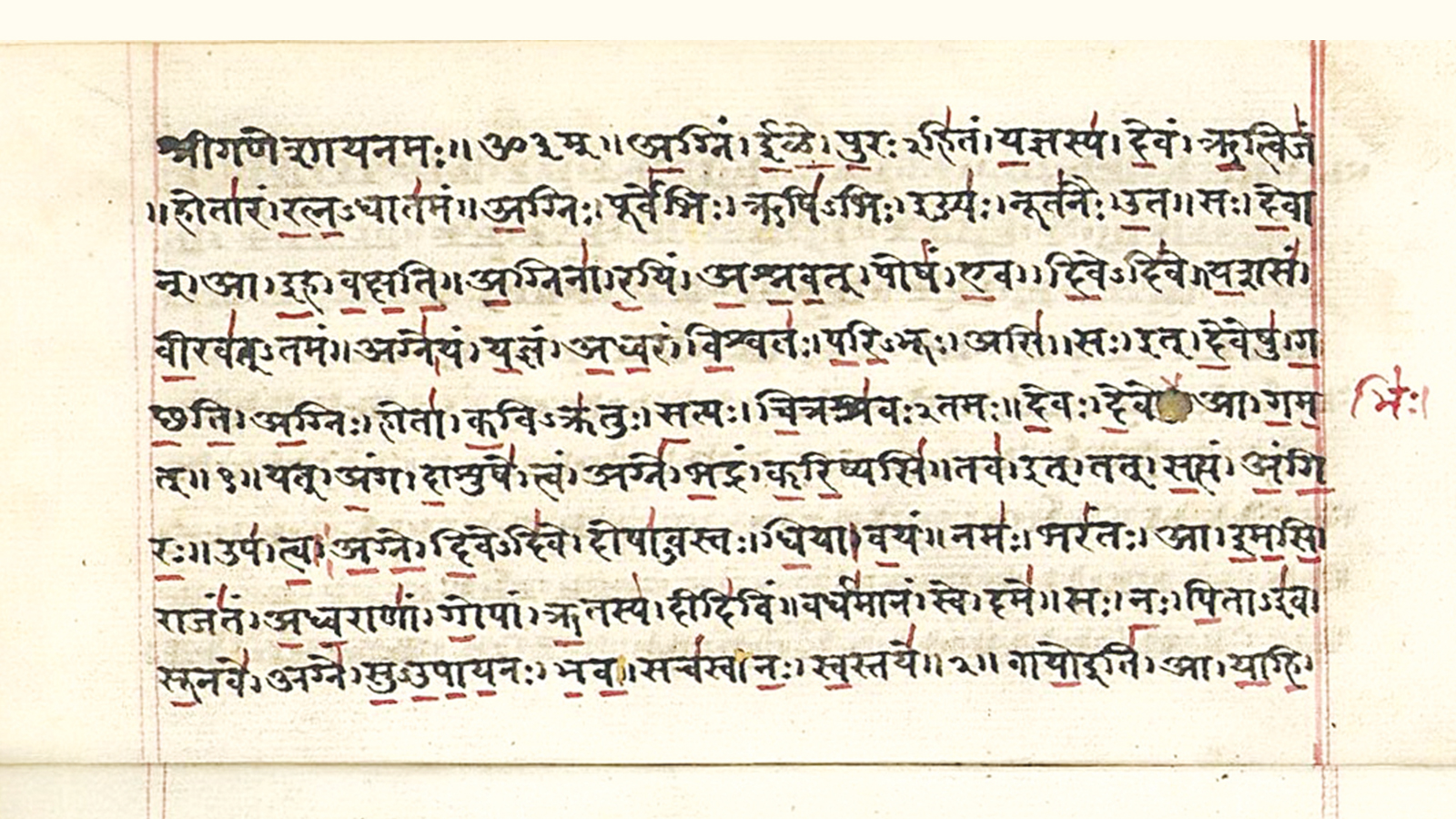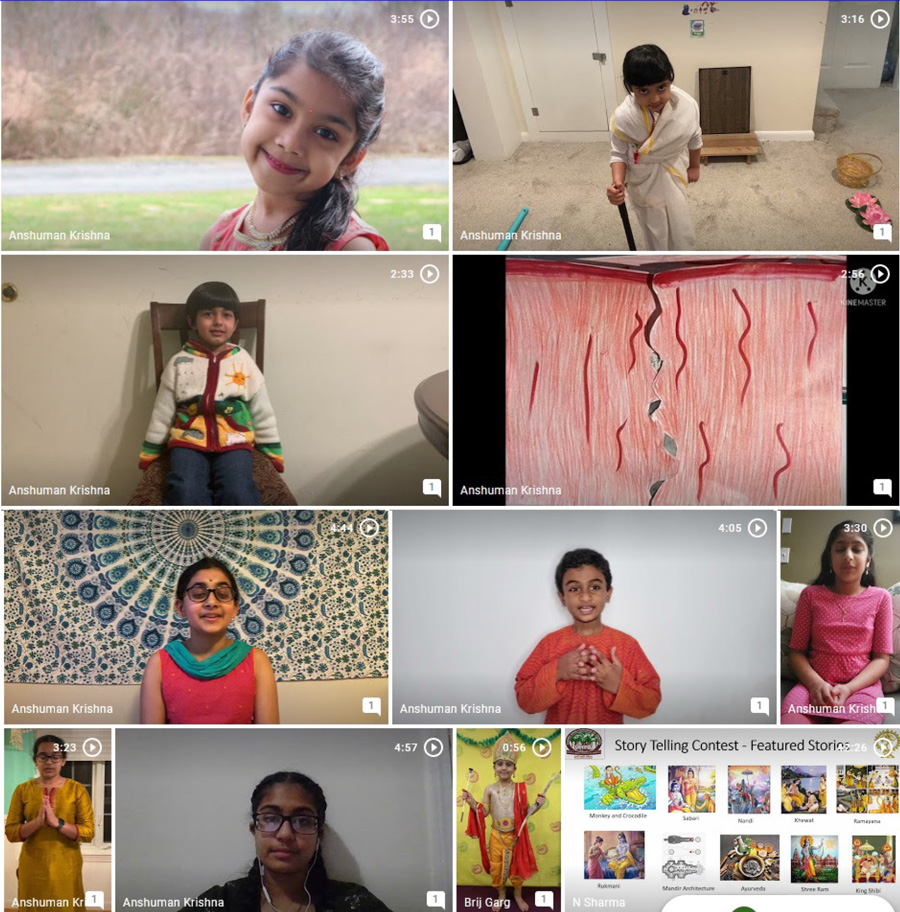A is for Appreciation. Busy brooding over what is missing in life, we overlook the blessings we already have. We must learn to appreciate the abundant gifts given by God.
Take a few moments to silently thank all who have come into your life and taught something or the other. These are not only family members, friends, teachers, and well-wishers but also those who have attempted to harm and destroy you. They have all taught you valuable life lessons. What would you be without them? Where would you be without them?
Appreciate people of all colors and backgrounds. Appreciate all religions, cultures and foods. The variety in God’s creation is truly formidable.
B is for Benevolence. Be benevolent without disclosing your acts of kindness. This kindness can be given in tangible and intangible ways. God is everyone’s father, and we are all His children. So many of our brothers and sisters need our help. Just as we teach small children to share, we must also share with our global family.
If God has given you the means, give the hungry ones the gift of food; give the uneducated ones the gift of education; give the gift of medical care. If you don’t have the means, give everyone your smiles, and your kind and loving thoughts.
C is for Contentment. A content pauper is better off than a greedy billionaire. The former is happy sleeping on the footpath while the latter frets about life aboard his luxury yacht. There are many who have more than you, and many who have less. Many are more fortunate and many less fortunate than you. Look at those who have less than you and remain content.
D is for Discipline. A disciplined individual works on putting limits on the mind and makes continuous efforts to control the mind. No one is born disciplined; it’s a choice we make in life. We all have a choice to obey the mischievous mind or to become the master of our mind. When we refuse to blindly obey the mind which is like a spoiled child, we start experiencing the true taste of freedom.
E is for Excellence. Anything worth doing is worth doing it well. We are free to choose. We can strive for excellence or we can do our work haphazardly and poorly. The feeling derived from excelling in any area of life is truly satisfying and uplifting. Striving for excellence involves challenging yourself and competing not with others but with yourself. When you shine in your own area, you help others reach their potential as well. The effect is far reaching. Excellent teachers and mentors leave an indelible mark on the mind of their students.
F is for Friendship. If you have one good friend in your life, you are indeed very fortunate. You may have dozens or even hundreds of Facebook friends, but they don’t know you and you don’t know them. Your real friend knows all your faults and likes you anyway. You may not have seen your friend for weeks or months, but when you meet you both pick up immediately from where you had left off, and it all feels very natural.
A true friend rejoices your success and encourages you when you falter and fall. A true friend stops you from committing wrongs without worrying about losing your friendship. A true friend stays with you after everyone has left, putting the furniture back and washing the dishes.
How do you get a true friend in life? By becoming a good friend first.
G is for Gratitude. We owe so much to so many for our existence and sustenance, and for our education and knowledge. From time to time we observe special occasions such as Mothers’ Day, Fathers’ Day, and Valentine’s Day. On these days we express thanks to various people in our lives in various ways. This is a good thing because an ungrateful person is not even fit to be called human. Being grateful grounds us and keeps us humble. It helps us realize that we cannot do without help from others.
We have many debts to pay. Vedic scriptures name three main ones: debt to ancestors, debt to sages, and debt to other creatures. Ancestors are worshipped; saints and sages are respected, and creatures are protected. Our ancestors are venerable to us. They are our elders who have greatly influenced our character and morals even though we may not know anything about them. Sages and ascetics are venerable for the divine knowledge they impart. We are thankful to fellow creatures because they serve us so well.
Above all, we ought to be grateful to God for giving us life and to the Divine Guru for teaching how to live our life.
H is for Honesty. You have undoubtedly heard the phrase, “Honesty is the best policy.” Why is it the best policy? When we are being dishonest we may fool others, but we cannot fool ourselves. The guilt and the shame that are experienced in the aftermath do not allow us to live peacefully. We are psychologically harmed by dishonesty, and this harm comes in the form of anxieties and ulcers. The small lie told to the boss, spouse, or co-worker at first seems inconsequential and harmless, but a pattern of dishonest behavior is soon formed. Gradually, the mind becomes comfortable with lies and deception, leading to more of the same.
Dishonesty becomes such a habit that we find it difficult to be honest with ourselves and with our Creator.
We belong to God. We are His part and parcel; His children. As such, we are instinctively in love with all the traits and virtues of a divine life, and honesty is one of them.
I is for Impartiality. The world is full of different kinds of people. Being children of the same God, we are all members of the same global family. Some members of this family are rich; some are poor. Some are highly educated; some are completely illiterate. Some are intellectuals; some are not. Some are white; some are black; some are brown.
God is impartial toward all His children. White, black or brown, we are loved equally by Him. Our Father makes no distinction between the rich and the poor. He does not love the ones with superior intellect more than he loves those who are dull-witted. Our Father would have His human children follow His example. We do, but only when are very small. Little children make no distinction between people of a different color, race or religion. Adults make sweeping generalizations. “All Chinese are…….,” or “All Indians are…….,” or “All Blacks are……,” or “All Hindus are….” These generalizations hurt people and breed hatred and contempt in the mind.
When you notice yourself judging a stranger, visualize that you are peeling away his outer layers. You no longer see the skin color or the shape of the nose or the mental capacity. You perceive only a beautiful soul that belongs to God.
J is for Jubilation. Life provides us many reasons for celebration. Look around and see the blue sky and the greenery that surrounds you. See the tree branches and leaves dance with joy. What are they celebrating? Hear the jubilant song of birds. What are they so happy about? Hear the happy screams of children in the playground. Appreciate the sheer joy these children are experiencing.
If you see nothing to be jubilant about, there is a need to do a system reboot. Change your attitude. Look at the world with fresh eyes. There is so much to celebrate. Even a simple walk in the park is a joyful occasion. The gentle rain is a wonder to behold. Open wide your mind and allow your senses to experience the beauty of Creation. Outsource your worries to your Divine Father and enjoy His wondrous works of art in the form of trees, flowers, hills, valleys, wind, rain and lightning.
Appreciate all that you have. Do not take anything you have for granted. When you do this, you will discover unlimited reasons for jubilation.
Email: s_didi@radhamadhavsociety.org



![[ India Today ] Ohio senator JD Vance thanks wife, a Hindu, for helping him find Christian faith](https://hinduvishwa.org/wp-content/uploads/2024/06/us-senator-jd-vance-reveals-how-his-hindu-wife-usha-helped-him-find-his-christian-faith-image-re-272530504-16x9_0-120x86.webp)










